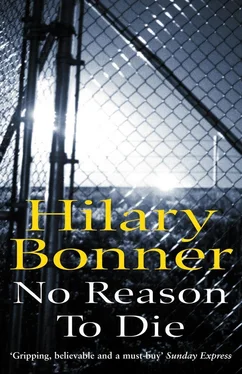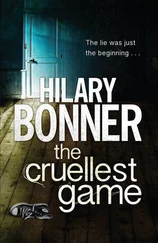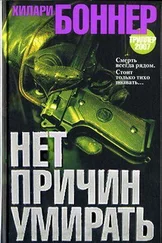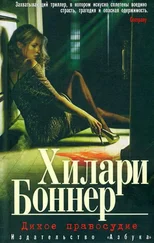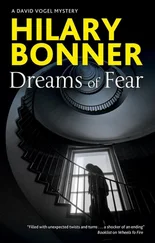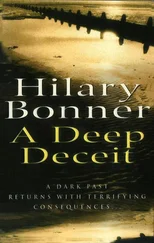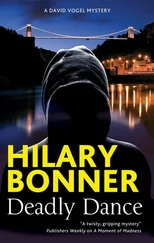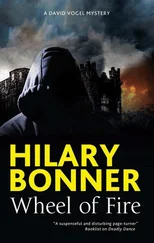‘I wondered if your son had ever said anything like this to you,’ continued Kelly. ‘I wondered if, perhaps, what he had to say might mean any more to you than it would to me or to anyone else?’
‘No,’ said Neil Connelly, after a short pause. ‘No. I do na understand it at all. Ma boy was very happy in the army, I’m sure of it. He was a good soldier. He liked the life. He was na unhappy. If he had been, he would have told us. We’ve always been a close family, Mr Kelly.’
‘You hear about bullying in the army, Mr Connelly. Do you think Alan could have been the victim of bullying?’
‘Ma boy could look after himself.’
‘Of course. It’s just that he seemed so frightened, and I think it might be important to find out why. He didn’t seem like a young man who was happy in his life, not at all.’
Neil Connelly shrugged. ‘He was drunk, wasn’t he? They told me he was very drunk. And he wouldn’t have been able to handle it. Our Al was na a drinker. He was only seventeen for Christ’s sake. My wife and I have tried to bring our children up properly.’
‘I’m sure you have, Neil.’
The other man frowned. ‘Look, what are you? Army welfare? We’ve had someone from welfare here already—’
‘I’m the man who’s trying to find out exactly what happened to your son, Neil,’ Kelly interrupted, dodging the question again. He looked around the room once more. Family photographs lined the wall. A picture of Alan, looking proud, in his army uniform, staring straight ahead from beneath his Fusiliers’ blue beret with its distinctive red and white hackle, took pride of place. Next to it was a photograph of a second young man in similar uniform. They could have been twins.
‘Another brother, I presume,’ remarked Kelly casually.
Neil Connelly smiled for the first time. It was a weak smile but it lit up his face.
‘No, that’s me twenty years ago,’ he said. ‘We had a lot in common, my boy and me. I did fifteen years in the army, in the same regiment, the Devonshire Fusiliers, and they were some of the best years of my life.’
‘Why the Devonshire Fusiliers?’ Kelly asked. ‘A regiment so far away from Scotland.’
‘Ah, well, there’s a bit of history in that,’ Neil Connelly explained, coming to life a bit as he did so. ‘My grandfather was a Devonian, from Plymouth, and he was called up to the Devonshires during the Second World War. Then, after the war, he stayed on as a regular. But my grandmother was a Scots lass, and when my grandfather retired from the army they moved up to Scotland. None the less, when my father decided to become a soldier, he wanted to join the same regiment as his da’, even though it was based at the other end of the country. As for me, all I wanted was to be a Devonshire Fusilier from when I was just a scrap of a lad. Ma boy was just the same. We’re a family of Fusiliers, Mr Kelly.’
Kelly studied the other man carefully. Neil Connelly, the way he described his family and the ordered, comfortable home in which they lived were not at all what he had been led to expect. Indeed, Connelly did not seem a bit like the picture of a bitter man, unemployed and probably unemployable, that Colonel Parker-Brown had painted to Karen.
‘So, what’ve you been doing since you left the army?’ Kelly asked conversationally.
‘I came out to a good job, in the shipyard. I wanted to see my children grow up. I’d have stayed a fusilier till they kicked me out, but for that. It all went wrong in the end, of course, when they announced they were closing down my yard. We were just about to buy our own house, move out of this place. Then I was made redundant. Me and hundreds of others. We managed, though. Mary went back to nursing. She’s an SRN and a good one.’ He glanced at his wife, who still gave no indication that she was even listening to what was going on, with obvious pride. ‘And I stayed at home to look after the kids for a bit.’
‘So have you been out of work since then?’
‘On and off. More off than on, I suppose. It’s not easy to find work in Glasgow. But then last year I joined the post office. Postman. I like it. Doesn’t pay great, but I like it.’
‘So you’re not out of work now.’
‘No. I am na.’
Kelly thought about it. Had Parker-Brown been deliberately lying to Karen, he wondered? Or had he merely been misinformed.
‘Look, what’s this all about?’ Connelly asked sharply.
‘There may be things you should know about, Neil,’ Kelly persisted. ‘For a start, there was another alleged accidental death at Hangridge, only a few months ago.’
‘Was there?’ Kelly could detect a definite note of curiosity in Connelly’s voice now.
‘You didn’t know, then?’ Kelly was well aware that he was stating the obvious. He hadn’t for one moment thought that the other man would know about the death of Craig Foster. He just wanted to stress the point.
‘No.’ There was a pause. Kelly waited. He wanted Connelly to be interested enough to come back at him, and was soon to be rewarded for his patience.
‘What happened?’
‘A young soldier was shot on a training exercise on the moors.’
Connelly shrugged. ‘It happens,’ he said. ‘It’s the army.’
‘Yes, but it is another sudden death. And your son indicated that there were more.’
‘My son was drunk. God bless him.’
Kelly had one last card to play.
‘Mr Connelly, would you describe your son as a fantasist?’
‘A what?’
‘Did he live in a fantasy world, make up stories?’
‘You have to be joking. You couldn’t be more down to earth than our Alan. He was always a sensible lad.’
‘So it would surprise you to know that his commanding officer told the police that Alan was a bit of a Walter Mitty?’
‘Surprise me? It would bloody astonish me.’
‘It’s the truth, Mr Connelly.’
Neil Connelly narrowed his eyes, appearing to think hard.
‘So you say,’ he responded eventually. ‘But how do I know that?’
‘I promise you I’m telling the truth, Mr Connelly...’
‘You’re not from the army, are you? You’re nothing to do with the army...’ Connelly rose abruptly to his feet. His wife seemed to hold her daughter even more tightly to her, but did not look up. Kelly thought she must still be totally in shock. Neil Connelly looked angry now. ‘You’re a bloody journalist, aren’t you? A vulture...’
Again Kelly avoided giving any information about himself. Instead he concentrated on trying to make Neil Connelly listen, on trying to convince the bereaved father that he had something to say that was worth listening to.
‘Look, Neil. Colonel Parker-Brown even went so far as to say that Alan’s days in the army were numbered because of his fantasising. He described him as a Walter Mitty.’
Neil Connelly sat down again on the sofa, as abruptly as he had risen from it. Kelly knew that he had at least succeeded in attracting the other man’s attention again. He stared at Kelly long and hard before eventually making a reply.
‘If my boy had been in any sort of trouble, he’d have told me,’ he announced.
‘Mr Connelly, I promise you, I’m telling you the truth,’ Kelly repeated. ‘I just think there are things that need looking into here. At the very least there’s justification for doing a bit of digging, trying to find out if anything amiss did go on at Hangridge. Your son would have wanted that, I’m sure of it. Why else would he have talked to me the way he did? I need your help, Mr Connelly, if I’m going to take this any further. And I really think it should be taken further, don’t you?’
Connelly stared at Kelly for a few moments longer, then he rose from his chair again and this time walked across the room to the mantelpiece, where he stood looking down at the pair of framed photographs taking pride of place. Two young men, proud and straight in the uniform of the Devonshire Fusiliers, looked back at him. One his own image from twenty years earlier, one that of an obviously cherished son.
Читать дальше
